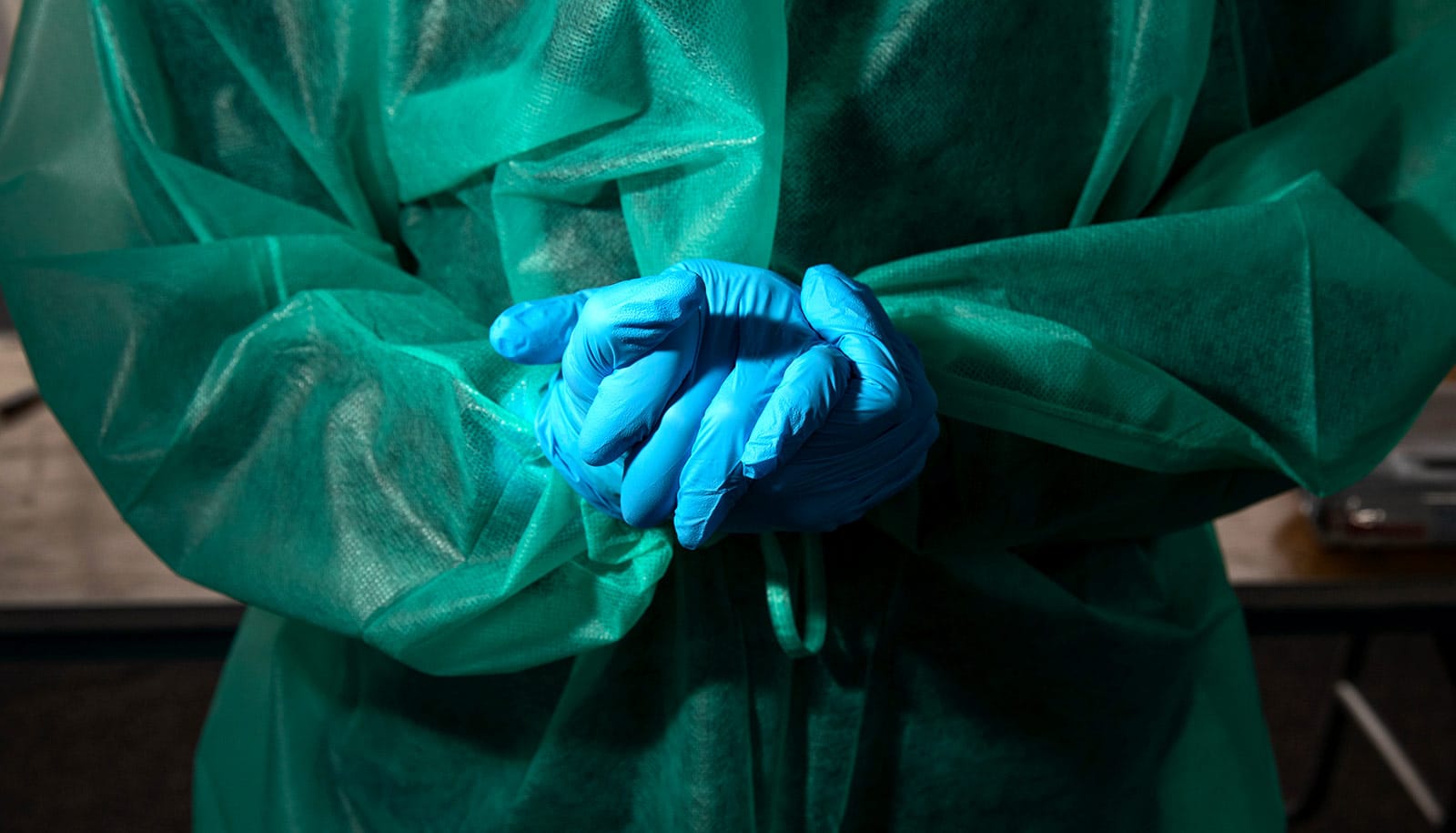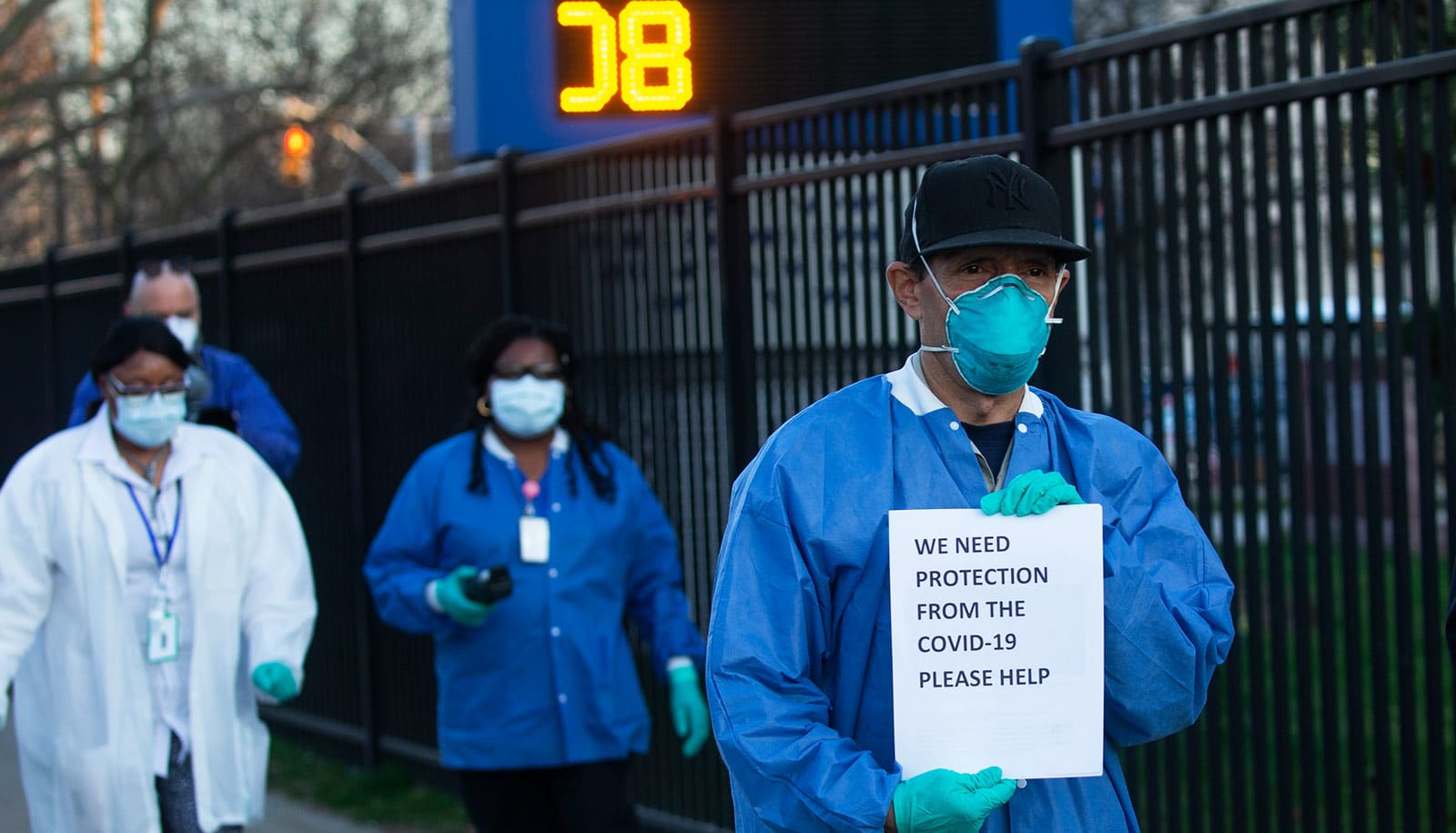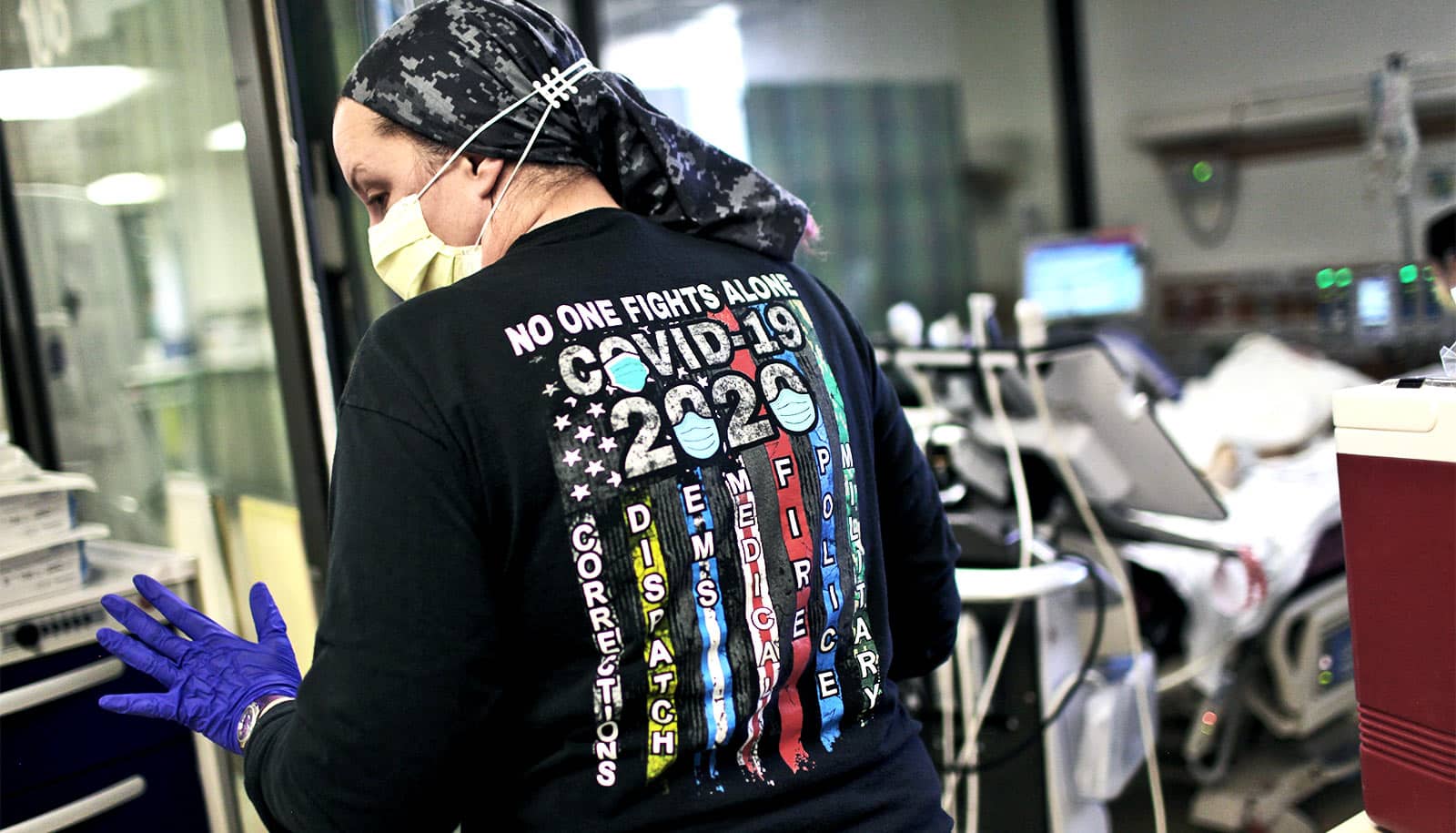
A doctor from SOMOS Community Care prepares to test a patient at a drive-thru testing center for COVID-19 at Lehman College on March 28, 2020 in the Bronx, New York City. (Credit: John Moore/Getty Images )
Can a mindfulness app prevent doctor burnout?
Many doctors live with significant anxiety, and the COVID-19 pandemic boosts the risk for burnout. A new mindfulness app may help.

Now more than ever, doctors face significant anxiety. A mindfulness app could help, research suggests.
“Health care providers are under tremendous pressure right now,” says Jud Brewer, director of research and innovation at the Mindfulness Center at Brown University. “Physician burnout was already reaching epidemic proportions before this pandemic hit.”
In fact, a 2014 study found that nearly half of all physicians experience significant symptoms of burnout, and further research suggests that the risk is particularly high for those who perceive that they aren’t in control of what unfolds around them.
Theoretically, this perceived lack of control leads to doctor anxiety, which can then lead to burnout.
Mindfulness app vs. anxiety
Brewer and his colleagues worked to address these conditions with a smartphone-app mindfulness training program called Unwinding Anxiety. They examined the app’s effects in a pilot study of 34 physicians, the first to test the effectiveness of an app-based mindfulness program as an intervention for anxiety in physicians.
“Clinicians need effective tools to help them reduce anxiety and burnout,” Brewer says. “Digital therapeutics are an ideal solution because people can use them in small doses, at home, on their own schedule.
“The app-based mindfulness training that we studied does just that: It provides short daily trainings—about 10 minutes per day—that people can access from their smartphone, and it gives them tools they can use throughout the day.”
The app aimed to help users recognize maladaptive thought patterns and become less reactive to anxious thoughts. And it worked. Three months after using the app for 30 days, participants exhibited a 57% decrease in anxiety scores.
Burnout, too?
Brewer and colleagues also found clear links between anxiety and certain aspects of burnout—cynicism and emotional exhaustion—which suggests that the app could effectively treat burnout as well. Sure enough, at the three-month follow-up, participants exhibited a 50% decrease in cynicism and a 20% decrease in emotional exhaustion.
“These results provide clear implications that this mindfulness-based digital therapeutic may be a useful tool for busy clinicians to both reduce anxiety and help build resilience against getting burnt out,” Brewer says.
He and his colleagues are already at work on the next steps: a randomized controlled trial of app-based mindfulness training for broader populations.
“The pharmaceutical industry hasn’t released any new anti-anxiety medications in decades and to my knowledge has no new drugs in the pipeline,” he says. “We need effective treatments, especially those that can be widely disseminated at low cost. Digital therapeutics, like app-based treatments, are the next wave of treatment.”
Brewer owns stock in the company that developed and sells the mindfulness-based app, a point fully disclosed in the study.
The paper appears in JMIR mHealth and uHealth. Additional coauthors are from the University of Massachusetts, Georgetown University, and Brown. The University of Massachusetts Memorial Medical Group funded the work.
Source: Kerry Benson for Brown University
The post Can a mindfulness app prevent doctor burnout? appeared first on Futurity.
Share this article:
This article uses material from the Futurity article, and is licenced under a CC BY-SA 4.0 International License. Images, videos and audio are available under their respective licenses.


